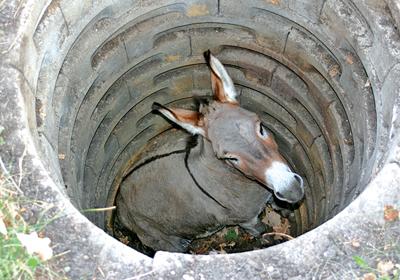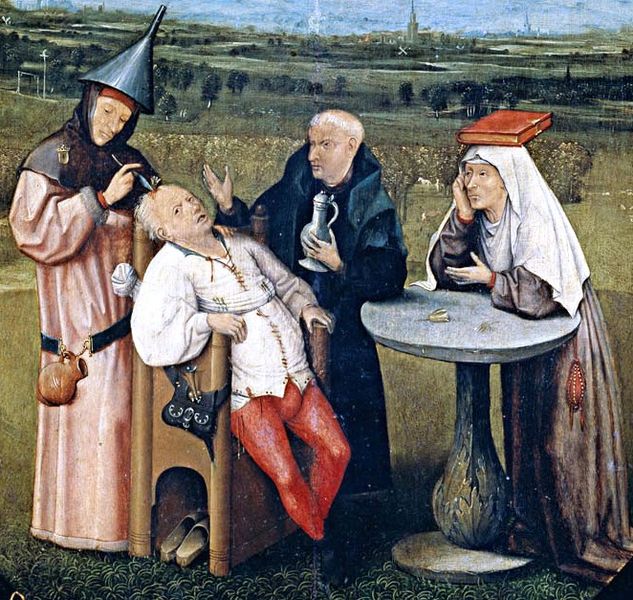One day, a donkey fell in to a well. It cried piteously for hours while the farmer tried to figure out what to do. Ultimately, the farmer decided that the donkey was old and was nor worth saving. He planned to fill the well, as he had no need for it either. He invited his neighbours to come over and help him. Everyone grabbed a spade and shovelled dirt into the well.
The donkey was terrified; sooner or later he would literally be buried alive, with no food, water or air. It cried even more and begged the farmer to show mercy. The people ignored the animal’s neighing and screeching. The donkey was about to give up. There was no hope of getting out the well and soon it would die a slow, suffocating death. But then, it came up with a cunning plan. As the dirt slowly filled the well, the donkey stepped up on the mound of earth. Eventually, the mound grew high enough for it to jump out of the well. The donkey then kicked the farmer and galloped off into the sunset.
Life is bound to throw all kinds of dirt at you. But just because bad things happen, it does not mean you have to live a miserable life. When life throws a spadeful of dirt at you, brush it off and step over it instead of letting it weigh you down. With a positive mindset and determination to become happy, you can escape even when you fall into the darkest, deepest well of despair.



